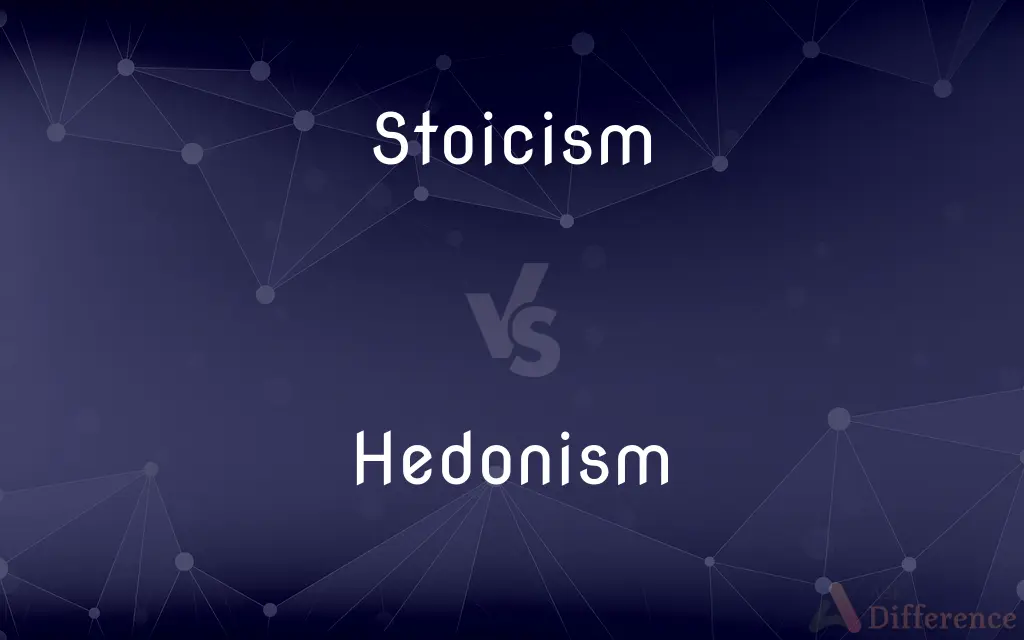Stoicism vs. Hedonism — What's the Difference?

Difference Between Stoicism and Hedonism
ADVERTISEMENT
Compare with Definitions
Stoicism
Stoicism is a school of Hellenistic philosophy founded by Zeno of Citium in Athens in the early 3rd century BC. It is a philosophy of personal ethics informed by its system of logic and its views on the natural world. According to its teachings, as social beings, the path to eudaimonia (happiness, or blessedness) is found in accepting the moment as it presents itself, by not allowing oneself to be controlled by the desire for pleasure or by the fear of pain, by using one's mind to understand the world and to do one's part in nature's plan, and by working together and treating others fairly and justly.
Hedonism
Hedonism refers to a family of theories, all of which have in common that pleasure plays a central role in them. Psychological or motivational hedonism claims that our behavior is determined by desires to increase pleasure and to decrease pain.
Stoicism
Indifference to pleasure or pain; impassiveness.
Hedonism
The pursuit of pleasure; sensual self-indulgence.
Stoicism
Stoicism The doctrines or philosophy of the Stoics.
ADVERTISEMENT
Hedonism
Pursuit of or devotion to pleasure, especially to the pleasures of the senses.
Stoicism
A school of philosophy popularized during the Roman Empire that emphasized reason as a means of understanding the natural state of things, or logos, and as a means of freeing oneself from emotional distress.
Hedonism
(Philosophy) The ethical doctrine holding that only what is pleasant or has pleasant consequences is intrinsically good.
Stoicism
A real or pretended indifference to pleasure or pain; insensibility; impassiveness.
Hedonism
(Psychology) The doctrine holding that behavior is motivated by the desire for pleasure and the avoidance of pain.
Stoicism
The opinions and maxims of the Stoics.
Hedonism
The belief that pleasure or happiness is the highest good in life. Some hedonists, such as the Epicureans, have insisted that pleasure of the entire mind, not just pleasure of the senses, is the highest good.
Stoicism
A real or pretended indifference to pleasure or pain; insensibility; impassiveness.
Hedonism
(countable) A general devotion to the pursuit of pleasure.
Stoicism
An indifference to pleasure or pain
Hedonism
The doctrine of the Hedonic sect; the pursuit of pleasure as a matter of ethical principle.
Stoicism
(philosophy) the philosophical system of the Stoics following the teachings of the ancient Greek philosopher Zeno
Hedonism
The ethical theory which finds the explanation and authority of duty in its tendency to give pleasure.
Hedonism
The pursuit of pleasure as a matter of ethical principle
Hedonism
An ethical system that evaluates the pursuit of pleasure as the highest good
Share Your Discovery

Previous Comparison
Grounded vs. Humble
Next Comparison
Verse vs. Line














































